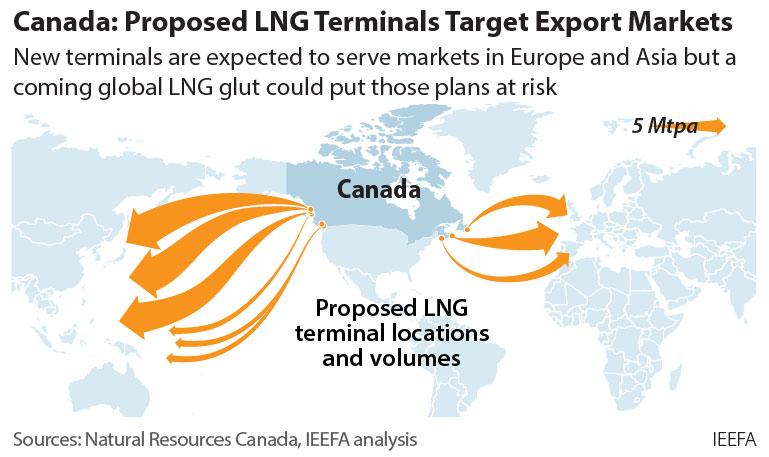Russia is exploring opportunities to expand its liquefied natural gas (LNG) exports to India, according to recent reports from Reuters. As global energy markets evolve amid shifting geopolitical dynamics, both countries appear to be strengthening their ties in the energy sector. This potential development comes at a time when India is seeking to diversify its energy sources to meet growing demand, while Russia aims to broaden its LNG customer base beyond traditional markets.
Russia Eyes Growing LNG Market in India Amid Energy Demand Surge
With India’s energy consumption rising rapidly, Russian energy firms are marking the South Asian giant as a key market for expanding liquefied natural gas (LNG) exports. The surge in industrial activity coupled with government initiatives to shift towards cleaner fuels has accelerated LNG demand, presenting a timely opportunity for Russian exporters. Industry analysts suggest that enhanced cooperation in LNG supply could help India diversify its energy sources while providing Russia with a steady revenue stream amid shifting global energy dynamics.
Key factors bolstering the LNG trade potential between Russia and India include:
- India’s ambition to increase LNG imports by over 30% in the next five years
- Russia’s strategic positioning with vast Siberian gas reserves and existing pipeline infrastructure
- Competitive pricing and flexible contract terms proposed by Russian suppliers
- Joint ventures and infrastructure development plans targeting Indian coastal LNG terminals
| Metric | 2023 | Projected 2028 |
|---|---|---|
| India LNG Imports (MMTPA) | 35 | 46 |
| Russian LNG Share (%) | 5 | 15 |
| Energy Demand Growth (%) | 6.5 | 7.8 |
Strategic Implications of Russia’s LNG Export Expansion for India’s Energy Security
India’s pursuit of diversified energy sources gains fresh momentum as Russia intensifies its Liquefied Natural Gas (LNG) export capacities. This development offers New Delhi an opportunity to alleviate long-standing concerns over energy security, particularly amid geopolitical tensions that have disrupted traditional supply routes. By establishing stronger LNG trade ties with Russia, India can potentially stabilize its energy mix, reduce dependency on Middle Eastern suppliers, and secure competitive pricing in a volatile global market.
Key strategic advantages for India include:
- Enhanced energy diversification to mitigate supply risks.
- Strengthening bilateral relations with a major global energy player.
- Potential technology transfer and investment opportunities in upstream LNG infrastructure.
- Long-term contracts aiding in demand forecasting and budgeting.
| Parameter | Russia’s LNG Capacity | India’s LNG Demand Growth |
|---|---|---|
| Current Export Volume (MT/year) | 40 | 35 |
| Projected Capacity by 2030 (MT/year) | 60 | 70 |
| Key Import Regions | Europe, Asia-Pacific | Industrial & Residential |
Recommendations for Strengthening Indo-Russian LNG Trade Partnerships
Enhancing infrastructure connectivity between the two nations is critical for unlocking the full potential of LNG trade. Investments in dedicated pipeline links, storage facilities, and port upgrades will minimize logistical bottlenecks and reduce transit times, enabling a more reliable supply chain. Additionally, fostering joint ventures that bring together Indian energy firms and Russian LNG producers can streamline operations and encourage knowledge sharing, ultimately driving down costs.
Policy harmonization and streamlined regulatory frameworks will play a pivotal role in strengthening partnerships. Both countries should work toward standardizing certification processes and safety regulations to facilitate smoother cross-border transactions. Establishing long-term contracts with flexible pricing mechanisms can also provide stability against market fluctuations, making LNG supplies more predictable for Indian buyers and boosting Russian export confidence.
| Key Focus Areas | Potential Benefits |
|---|---|
| Infrastructure Investments | Reduced costs, faster delivery |
| Joint Ventures | Knowledge transfer, operational efficiency |
| Regulatory Alignment | Smoother trade flows, greater compliance |
| Long-term Contracts | Price stability, mutual trust |
Key Takeaways
As Russia explores avenues to expand its liquefied natural gas exports to India, both nations appear poised to deepen their energy cooperation amid shifting global markets. While challenges remain, including geopolitical dynamics and infrastructure development, the potential for increased LNG trade underscores a strategic partnership that could reshape regional energy flows in the coming years. Stakeholders will be watching closely as talks progress and concrete agreements take shape.




